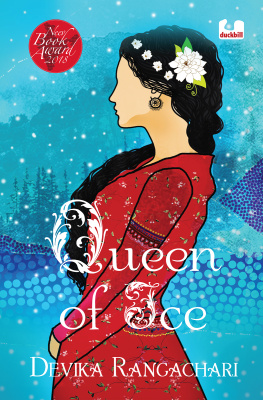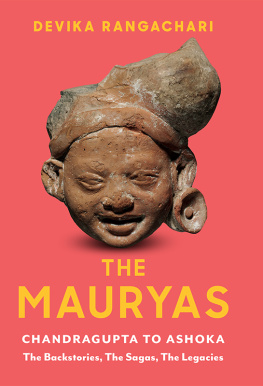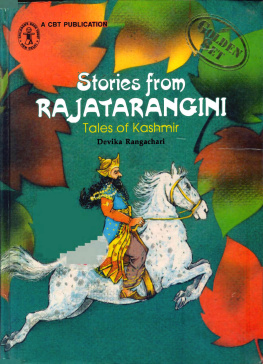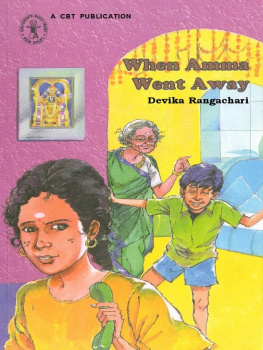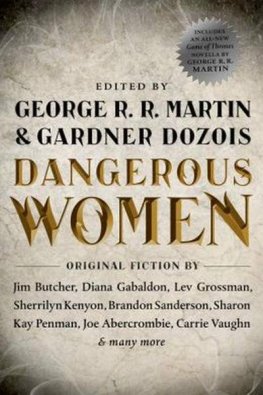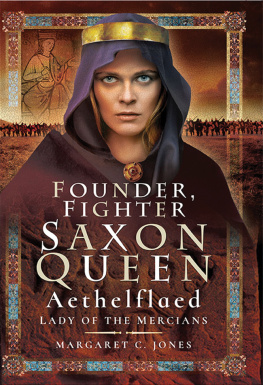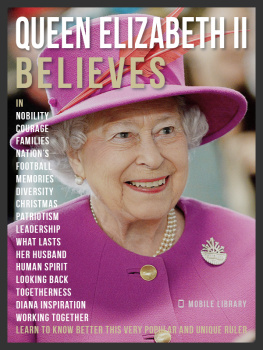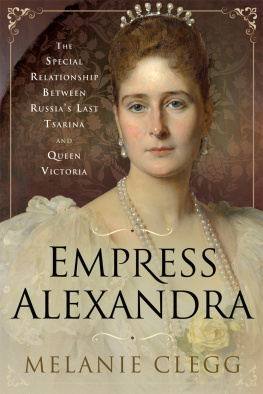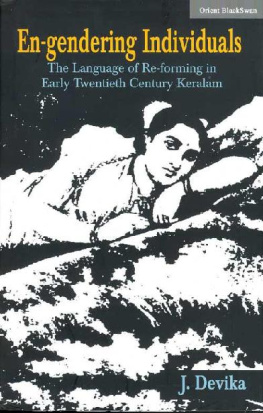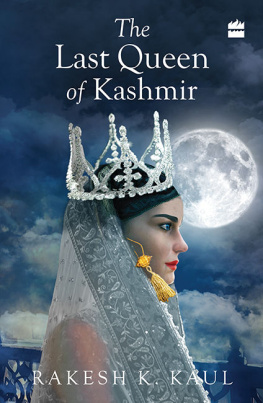SIGNS OF GREATNESS
Didda
I have heard the tale many times overand yet, I feel a thrill course through my body at each narration. It is as if the words are breathing life into me, making me into a person of flesh and blood from a mere idea.
It was dark, my mother says, sometime between deepest night and early dawn. I was in pain, such pain that I thought I would die.
But you didnt, I murmur as I snuggle closer to her, covering my toes with the hem of her voluminous silk skirts. The snow continues to fall outside, each layer covering the previous one as if it were a package waiting to be trussed up and loaded on to the back of a pack mule. The fire roars in the chamber, meanwhilea somewhat noisy intrusion into our time together.
No, I didnt, my mother agrees. Just when I thought I couldnt bear it any longer, just when I wanted to give up the fight, there you came in a rush.
And the midwife held me up and said, Behold, your majesty, you have a girl! I chant, the familiar words slipping off my tongue so easily that I could have recited them in my sleep. How often had I heard this story? Ever since I could understand words and frame them into pictures in my mind, I suppose. But I had reached the hard part of the tale and a frown creased my brow.
My mother sighed and reached for my foot, tugging it out gently from under her skirts and caressing its deformed contours. I flinched as I always did when someone touched it. It didnt hurtat least, not physicallybut my mind filled with the usual anger and sadness.
Why was I born like this? I ask, as if I hadnt already asked this question a hundred times over.
It is gods will, replies my mother, as always. Her eyes are filled with tenderness but as I turn my face away to hide my tears, she cups my chin in her hands and shakes her head. No tears, my Didda, she says firmly. You must try to accept your lameness, not fight it. She wipes the tears that are coursing down my cheeks and makes me meet her eye. You are destined for greatness, my child. Havent I always told you that?
How will I be great? And when?
She smiles at the childish question. Some day. You have to be patient.
I know what she meansthe story that had done the rounds of the court soon after I was born and ensured, perhaps, that I wasnt stifled at birth for being a girland a deformed one at that. The astrologer, a fearsome, impossibly tall man, who held the court in thrall to his powers, had told my father that the signs proclaimed greatness for me.
And so, I was allowed to live. Yet I often saw my father look at my cousin, Vigraharaja, his late brothers son who lived with us, with longing in his eyes and I knew he wished that he had sired him, not me. I hated my cousin with the wholehearted animosity that always accompanies jealousy, particularly in a childs mind. He was a year younger than me, robust and proud, and never slow to take advantage of my fathers fondness for him. When no one was looking, he would push me hard so that I would topple over to the ground and scream in frustrated rage. One of my maids would hasten to put me back on my feet but my day would have been ruined anyway. If I tried to get my own back on him by telling tales, my father would frown, his brow thunderous, and motion for me to be quiet. And Vigraha would look hurt and injured but throw me a threatening look from under his lashes. This was the way it always was.
By the time I was ten, I knew what I had suspected all alongthat my father hated me and was ashamed to acknowledge me as his daughter. A ruler of his stature should have had a strong, healthy son to his name, after all, not a weakling girl who was lame. I also knew that there was some sort of tension between my parents, a simmering hostility. At first, I thought I was the sole cause but I soon came to realize that it was more complex than that. My mother was from the powerful Shahi family of Gandhara and had married into Lohara, as was the tacit tradition between the two royal houses.
It was doomed to failure, thoughthis mismatched union between my forceful, ambitious mother and my short-tempered, indolent father. The more my father frittered away his time and money on drunken pursuits and sycophants, the more frustrated my mother grew. I had often heard her berate him for behaving in a manner unbecoming of a ruler of Lohara, but only heard his jeers in response. The taunts must have worsened after my birth, I suppose. The more brusque and dismissive my father was of me, the more tender and loving were my mothers attentions. Yet, was I a failure, even though my mother tried hard to conceal it? Had she, perhaps, bribed the astrologer to make his prediction about me?
My mothers father, the Shahi ruler of Gandhara, was a formidable figure. But his harsh expression would instantly soften when he set eyes on me. I always looked forward to his visits to Lohara, which were, fortunately, frequent. Whenever he clattered into the palace courtyard with his entourage, I would run from my chamber to greet him and promptly get swung in the air in dizzying circles while he exclaimed over me. When I was with him, no one and nothing could touch me or mar my happiness, not even my fathers sulky expression and ill-concealed annoyance.
That I was dear to my grandfather was known all over the court. It was something that even Vigraha was forced to acknowledge. He usually skulked in the corner, unseen, during these visits.
On one of these visits, when I was about ten and beginning to learn some things about myselfmy quick temper, my curiosity about the world of men, my intelligence and beauty that people were starting to noticeas I ran past him, full of excitement, Vigraha hissed at me, Your grandfathers so old, he will drop dead very soon.

